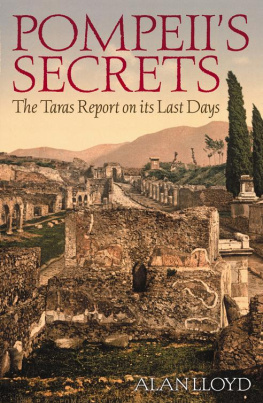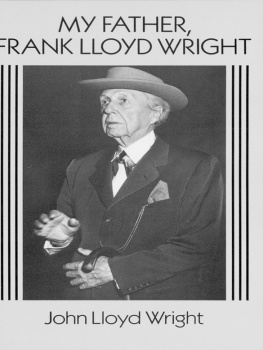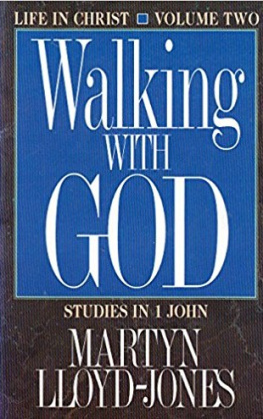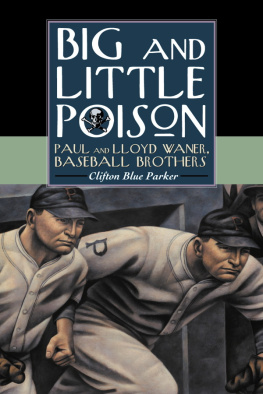Henry Demarest Lloyd - Wealth Against Commonwealth
Here you can read online Henry Demarest Lloyd - Wealth Against Commonwealth full text of the book (entire story) in english for free. Download pdf and epub, get meaning, cover and reviews about this ebook. year: 2011, publisher: Barnes & Noble, genre: Romance novel. Description of the work, (preface) as well as reviews are available. Best literature library LitArk.com created for fans of good reading and offers a wide selection of genres:
Romance novel
Science fiction
Adventure
Detective
Science
History
Home and family
Prose
Art
Politics
Computer
Non-fiction
Religion
Business
Children
Humor
Choose a favorite category and find really read worthwhile books. Enjoy immersion in the world of imagination, feel the emotions of the characters or learn something new for yourself, make an fascinating discovery.
- Book:Wealth Against Commonwealth
- Author:
- Publisher:Barnes & Noble
- Genre:
- Year:2011
- Rating:4 / 5
- Favourites:Add to favourites
- Your mark:
- 80
- 1
- 2
- 3
- 4
- 5
Wealth Against Commonwealth: summary, description and annotation
We offer to read an annotation, description, summary or preface (depends on what the author of the book "Wealth Against Commonwealth" wrote himself). If you haven't found the necessary information about the book — write in the comments, we will try to find it.
Lloyds 1881 expos of the Standard Oil Company in the Atlantic Monthly forms the core of Wealth Against Commonwealth, a full-length indictment of John D. Rockefeller and his oil companycalling them prototypes of the industrial monopolies he felt were corrupting American liberty. Appealing to the intellectual elite of America, Lloyd converted his audience to a loose yet determined ideology of democratic brotherhood.
Wealth Against Commonwealth — read online for free the complete book (whole text) full work
Below is the text of the book, divided by pages. System saving the place of the last page read, allows you to conveniently read the book "Wealth Against Commonwealth" online for free, without having to search again every time where you left off. Put a bookmark, and you can go to the page where you finished reading at any time.
Font size:
Interval:
Bookmark:
HENRY DEMAREST LLOYD

This 2011 edition published by Barnes & Noble, Inc.
All rights reserved. No part of this publication may be reproduced, stored in a retrieval system, or transmitted, in any form or by any means, electronic, mechanical, photocopying, recording, or otherwise, without prior written permission from the publisher.
Barnes & Noble, Inc.
122 Fifth Avenue
New York, NY 10011
ISBN: 978-1-4114-6009-6
CHAPTER I
"THERE ARE NONE""THEY ARE LEGION"
N ATURE is rich; but everywhere man, the heir of nature, is poor. Never in this happy country or elsewhereexcept in the Land of Miracle, where "they did all eat and were filled"has there been enough of anything for the people. Never since time began have all the sons and daughters of men been all warm, and all filled, and all shod and roofed. Never yet have all the virgins, wise or foolish, been able to fill their lamps with oil.
The world, enriched by thousands of generations of toilers and thinkers, has reached a fertility which can give every human being a plenty undreamed of even in the Utopias. But between this plenty ripening on the boughs of our civilization and the people hungering for it step the "cornerers," the syndicates, trusts, combinations, with the cry of "overproduction"too much of everything. Holding back the riches of earth, sea, and sky from their fellows who famish and freeze in the dark, they declare to them that there is too much light and warmth and food. They assert the right, for their private profit, to regulate the consumption by the people of the necessaries of life, and to control production, not by the needs of humanity, but by the desires of a few for dividends. The coal syndicate thinks there is too much coal. There is too much iron, too much lumber, too much flourfor this or that syndicate.
The majority have never been able to buy enough of anything; but this minority have too much of everything to sell.
Liberty produces wealth, and wealth destroys liberty. "The splendid empire of Charles V.," says Motley, "was erected upon the grave of liberty." Our bignesses, cities, factories, monopolies, fortunes, which are our empires, are the obesities of an age gluttonous beyond its powers of digestion. Mankind are crowding upon each other in the centres, and struggling to keep each other out of the feast set by the new sciences and the new fellowships. Our size has got beyond both our science and our conscience. The vision of the railroad stockholder is not far-sighted enough to see into the office of the General Manager; the people cannot reach across even a ward of a city to rule their rulers; Captains of Industry "do not know" whether the men in the ranks are dying from lack of food and shelter; we cannot clean our cities nor our politics; the locomotive has more man-power than all the ballot-boxes, and mill-wheels wear out the hearts of workers unable to keep up beating time to their whirl. If mankind had gone on pursuing the ideals of the fighter, the time would necessarily have come when there would have been only a few, then only one, and then none left. This is what we are witnessing in the world of livelihoods. Our ideals of livelihood are ideals of mutual deglutition. We are rapidly reaching the stage where in each province only a few are left; that is the key to our times. Beyond the deep is another deep. This era is but a passing phase in the evolution of industrial Csars, and these Csars will be of a new typecorporate Csars.
For those who like the perpetual motion of a debate in which neither of the disputants is looking at the same side of the shield, there are infinite satisfactions in the current controversy as to whether there is any such thing as "monopoly." "There are none," says one side. "They are legion," says the other. "The idea that there can be such a thing is absurd," says one, who with half a dozen associates controls the source, the price, the quality, the quantity of nine-tenths of a great necessary of life. But "There will soon be a trust for every that no one has a monopoly unless there is a "disability" or "restriction" imposed by law on all who would compete. A syndicate that had succeeded in bottling for sale all the air of the earth would not have a monopoly in this view, unless there were on the statute-books a law forbidding every one else from selling air. No others could get air to sell; the people could not get air to breathe, but there would be no monopoly because there is no "legal restriction" on breathing or selling the atmosphere.
Excepting in the manufacture of postage-stamps, gold dollars, and a few other such cases of a "legal restriction," there are no monopolies according to this definition. It excludes the whole body of facts which the people include in their definition, and dismisses a great public question by a mere play on words. The other side of the shield was described by Judge Barrett, of the Supreme Court of New York. A monopoly he declared to be "any combination the tendency of which is to prevent competition in its broad and general sense, and to control and thus at will enhance prices to the detriment of the public.... Nor need it be permanent or complete. It is enough that it may be even temporarily and partially successful. The question in the end is, Does it inevitably tend to public injury?"
Those who insist that "there are none" are the fortunate ones who came up to the shield on its golden side. But common usage agrees with the language of Judge Barrett, because it exactly fits a fact which presses on common people heavily, and will grow heavier before it grows lighter.
The committee of Congress investigating trusts in 1889 did not report any list of these combinations to control markets, "for the reason that new ones are constantly forming, and that old ones are constantly extending their relations so as to cover new branches of the business and invade new territories."
It is true that such a list, like a dictionary, would begin to be wrong the moment it began to appear. But though only an instantaneous photograph of the whirlwind, it would give an idea, to be gained in no other way, of a movement shadowing two hemispheres. In an incredible number of the necessaries and luxuries of life, from meat to tombstones, some inner circle of the "fittest" has sought, and very often obtained, the sweet power which Judge Barrett found the sugar trust had: It "can close every refinery at will, close some and open others, limit the purchases of raw material (thus jeopardizing, and in a considerable degree controlling, its production), artificially limit the production of refined sugar, enhance the price to enrich themselves and their associates at the public expense, and depress the price when necessary to crush out and impoverish a foolhardy rival."
Corners are "acute" attacks of that which combinations exhibit as chronic. First a corner, then a pool, then a trust, has often been the genesis. The last stage, when the trust throws off the forms of combination and returns to the simpler dress of corporations, is already well along. Some of the "sympathetical cooperations" on record have no doubt ceased to exist. But that they should have been attempted is one of the signs of the time, and these attempts are repeated again and again until success is reached.
The line of development is from local to national, and from national to international. The amount of capital changes continually with the recrystallizations in progress. Not less than five hundred million dollars is in the coal combination, which our evidence shows to have flourished twenty-two years; that in oil has nearly if not quite two hundred millions; and the other combinations in which its members are leaders foot up hundreds of millions more. Hundreds of millions of dollars are united in the railroads and elevators of the Northwest against the wheat-growers. In cattle and meat there are not less than one hundred millions; in whiskey, thirty-five millions; and in beer a great deal more than that; in sugar, seventy-five millions; in leather, over a hundred millions; in gas, hundreds of millions. At this writing a union is being negotiated of all the piano-makers in the United States, to have a capital of fifty millions. Quite beyond ordinary comprehension is the magnitude of the syndicates, if there is more than one, which are going from city to city, consolidating all the gasworks, electric-lighting companies, street-railways in each into single properties, and consolidating these into vast estates for central corporations of capitalists, controlling from metropolitan offices the transportation of the people of scores of cities. Such a syndicate negotiating in December 1892, for the control of the street-railways of Brooklyn, was said by the New York
Font size:
Interval:
Bookmark:
Similar books «Wealth Against Commonwealth»
Look at similar books to Wealth Against Commonwealth. We have selected literature similar in name and meaning in the hope of providing readers with more options to find new, interesting, not yet read works.
Discussion, reviews of the book Wealth Against Commonwealth and just readers' own opinions. Leave your comments, write what you think about the work, its meaning or the main characters. Specify what exactly you liked and what you didn't like, and why you think so.













